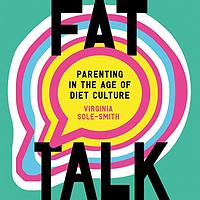Take a photo of a barcode or cover
informative
medium-paced
This is a must read for all parents, teachers, coaches, and anyone else who remotely regularly interacts with kids. I’ve always been straight-sized, am childfree by choice, and am well versed in anti-fat bias and weight-neutral healthcare, but I still very much benefited from this book. (I have friends with kids, expect some of my siblings to have kids, and occasionally give mental health presentations in middle schools.) Minus 0.5 stars because I find the citation formatting much less clear than most other research-dense books I read.
I don’t agree with every take this author has, but overall this was a compulsively readable look at raising kids in a world that demonizes fatness. As I sat here finishing it, my 8-year-old asked if I thought she was thin, so its relevance is obvious for me, despite being in straight sizes myself and with (currently) thin children. Navigating a world where self-hatred is the norm is tricky, and this book offers a lot of common sense and data on rejecting the idea that thinness is health or worth striving for.
A great book for parents to read all about anti fat bias! Read in preparation for work. Says all the right things and is super informative!
Science-based, practical, intersection and challenging. Loved this.
If you have a kid, were a kid at some point, or are in any way kid-adjacent, you should probably read this book.
Genuinely one of the most important books I could have read this year. Or any. I learning so much of the fatphobic bullshit that was ingrained into me from an early age thanks to my upbringing and society was intense and therapeutic. Reframing that in context to raising two kids in this world blew my mind entirely. I will be recommending this to anyone and everyone for such a long time.
Parent or not, I'm begging every person who is around, has ever been around, will ever be around, or has ever been a child to read this book.
Some excellent stuff in here. The first 25% is just trying to convince you that dieting is bad and fatness is neutral, and you can get that perspective in many other places. Where this book shines I think is in the how-to's. Lots of sample scripts for talking to thin kids and fat kids alike about anti-fat bias, as well as other people in kids' lives, like grandparents, coaches, teachers, and friends. Huge resource section in the back.
The one thing I thought was missing was more engagement with capitalism (I mean, of course I thought that, I'm a Marxist sociologist, but still). There's a chapter on social media that's great, and emphasizes building kids' media literacy, which is essential, but also leaves out much discussion of how platforms profit from our attention. Also, I'm sympathetic to the effort to not demonize any foods, and I was relieved to read that there isn't actually any conclusive research on sugar being addictive, but thanks to the capitalist growth imperative, it IS in more and more foods, and there IS incentive to create and sell more and more processed foods, because that's where the profit is at. I'm still struggling with this piece. I certainly don't want to condemn anyone for relying on convenience foods when we're all just trying to get by, but I really want a discussion of the growth of processed foods that doesn't jump straight to fatphobic, classist, ableist, etc. rhetoric.
The one thing I thought was missing was more engagement with capitalism (I mean, of course I thought that, I'm a Marxist sociologist, but still). There's a chapter on social media that's great, and emphasizes building kids' media literacy, which is essential, but also leaves out much discussion of how platforms profit from our attention. Also, I'm sympathetic to the effort to not demonize any foods, and I was relieved to read that there isn't actually any conclusive research on sugar being addictive, but thanks to the capitalist growth imperative, it IS in more and more foods, and there IS incentive to create and sell more and more processed foods, because that's where the profit is at. I'm still struggling with this piece. I certainly don't want to condemn anyone for relying on convenience foods when we're all just trying to get by, but I really want a discussion of the growth of processed foods that doesn't jump straight to fatphobic, classist, ableist, etc. rhetoric.
I will definitely read this book again. Maybe I’ll revisit it every couple of years. So important.




